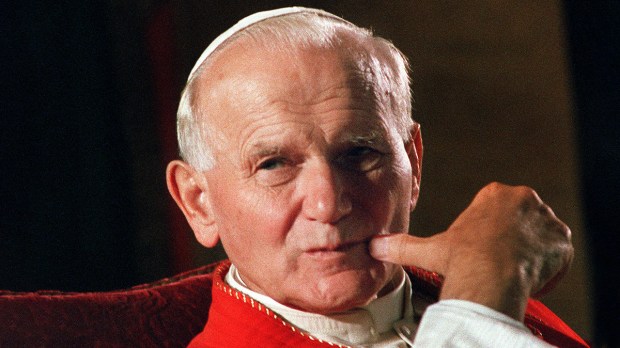It is a common custom to review one’s life at the end of each calendar year. We do so to remember the many good things that happened to us over the past 12 months, as well as all the struggles we endured.
For St. John Paul II, this act should be done in the light of the family, both our own family and the “human family” in general. He explains this type of review in his first Te Deum homily as pope in 1978.
Fostering fraternity in the “human family”
This Sunday is also the last day of the year 1978. We have gathered here, in this liturgy to give thanks to God for all the good he has bestowed on us and given us the grace to do during the past year, and to ask his forgiveness for all that, being contrary to good, is also contrary to his holy will.
Allow me, in this thanksgiving and in this request for forgiveness, to use also the criterion of the family, this time, however, in the wider sense. As God is the Father, then the criterion of the family has also this dimension; it refers to all human communities, societies, nations and countries; it refers to the Church and to mankind.
Concluding this year in this way, let us give thanks to God for everything that—in the various spheres of earthly existence—makes men even more of a “family,” that is, more brothers and sisters, who have in common the one Father. At the same time, let us ask for forgiveness for everything that is alien to the common brotherhood of men, that destroys the unity of the human family, that threatens it and impedes it.
This type of review looks critically at our own lives and examines how we helped sow fraternity in our community, or if we sowed discord in the human family.
Protecting life and married love
In addition to the larger “human family,” St. John Paul II also mentions in that same homily two areas that we should examine in our own lives. He urges everyone to review how you have protected life and the sanctity of married love.
[H]ere it is a question of two fundamental values which fall strictly into the context of what we call “conjugal love.” The first of them is the value of the person which is expressed in absolute mutual faithfulness until death: the faithfulness of the husband to his wife and of the wife to her husband.
The consequence of this affirmation of the value of the person, which is expressed in the mutual relationship between husband and wife, must also be respect for the personal value of the new life, that is, of the child, from the first moment of his conception.
In this way, we can look at our own lives and see how we have supported the dignity of every human person, starting from their conception. Furthermore, we can examine how we have promoted the value of faithfulness in married life, recognizing the importance of the family and its connection to the fabric of society.
As we look toward the New Year, let us look back and give thanks for many things, but also ask forgiveness from anyone we may have hurt.


